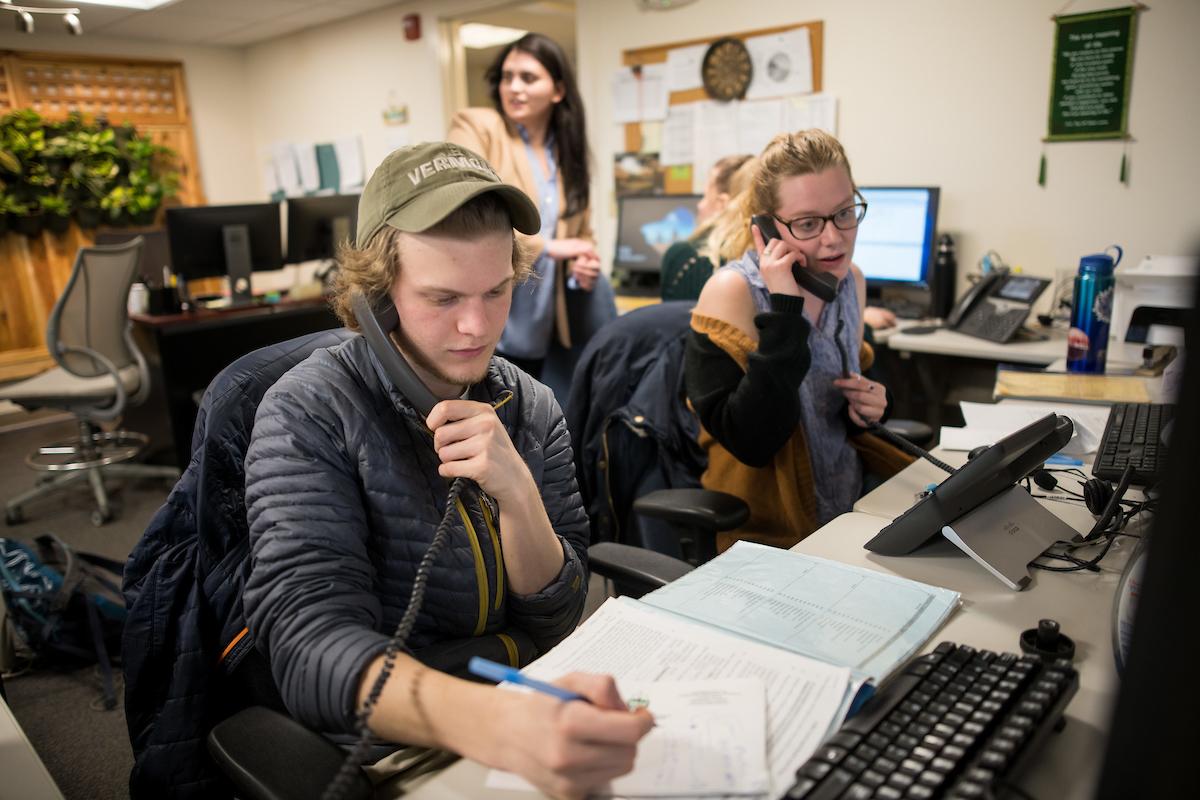
by Jason Huynh, UVM Class of 2026
“The most beautiful thing about the Consumer Assistance Program (CAP) is there's not one specific takeaway that a student is going to get,” Margaret Tabb, a Public Communication graduate said. “A student is going to take away what skill they're looking for, what transferable skill they're looking to develop, and [that] is something that you can take with you anywhere that you go.”
CAP is a partnership program between the Vermont Attorney General's Office and the University of Vermont. The academic component is a service-learning class based out of the Department of Community Development and Applied Economics (CDAE) which embodies the values and mission of the department through hands-on learning for the public good. Students develop professional skills by assisting consumers, businesses, and the public through outreach and education.
CAP was created in the late 1980s by Jay Ashman, a former professor in CDAE and an Assistant Attorney General. “He knew that there was an opportunity to offer students a service-learning experience where they could apply the knowledge of what they were learning in consumer law, and to assist Vermont consumers with unresolved complaints,” explained Lisa Jensen, Assistant Director of the CAP.
The specific name of the class is CDAE 2590: SL-Consumer Law in Action. It is offered every semester, making it easy for students to get involved and focus on what they want to get out of it.
“We try to tailor the experience to what students' interests are,” said Margaret Tabb, the Program Support Generalist at the CAP. “We were seeing a lot of CDAE Students in the class, but we wanted to expand the program to individuals who might be in other majors.”
The CAP provides educational resources to Vermonters and helps resolve any complaints with various businesses located in Vermont as well as out of state businesses. This ties back to the community-focused mission of CDAE and directly engages students in applied work.
The purpose of CAP, according to Jensen, is “to develop a community within our office where students feel welcomed.” Students are encouraged to help Vermonters through CAP’s mediation service and by offering referrals to appropriate resources if CAP cannot assist them. The work of the CAP team directly impacts a consumer’s financial stability. Students are an integral part of the team in this respect. “They’ll reach out to the business; they'll help the consumer resolve the complaint. That is economic stability and that is tied right into CDAE's mission,” Jensen said.
At the heart of the program are the complaint mediation service, the referrals program, and the scam report protocol.
Complaint mediation entails students checking in with consumers about complaints against businesses. Students then mediate a solution through communication with both parties. If CAP is not equipped to deal with this complaint, students will then refer the consumer to the next available agency that can handle it. Lastly, students will research scams and log them onto a database. Tracking scam trends helps CAP spread awareness of the latest scams for Vermonters.
CAP empowers students to find their interest and how they can assist Vermonters. For example, Claire Montgomery, a Junior majoring in Public Communication and Community Entrepreneurship, says that working in the CAP office made her feel like she is working toward her career.
“We respond to these complaints by mediating it through a letter service and try getting customers refunds,” Montgomery said. “It’s been awesome just to be able to work directly with consumers and talk to them on the phone,” she explained. “It feels like I'm making a difference.”
For Olivia Miller, her work at the CAP office has allowed her to help her friends and impact her local community. A Junior majoring in Public Communication with two minors in Food Systems and Community International Development and Consumer Affairs, Miller said, “I can use what I have learned here for landlord tenants’ issues. I can let my friends know what to look out for.” She particularly appreciates helping members of the local community resolve an issue. “I got a message saying that a complaint had been resolved and it's a really rewarding feeling,” Miller said. “It benefited someone!”
CAP is a mutually beneficial partnership between the Vermont community and UVM students. “This is my favorite class I have taken at UVM so far and I like how hands-on it is,” Henry Beling, a sophomore majoring in Public Communication, said of his experience in CAP. “I feel like that is rewarding to me because I'm helping people and using my knowledge from CAP and applying it to help people out.”

